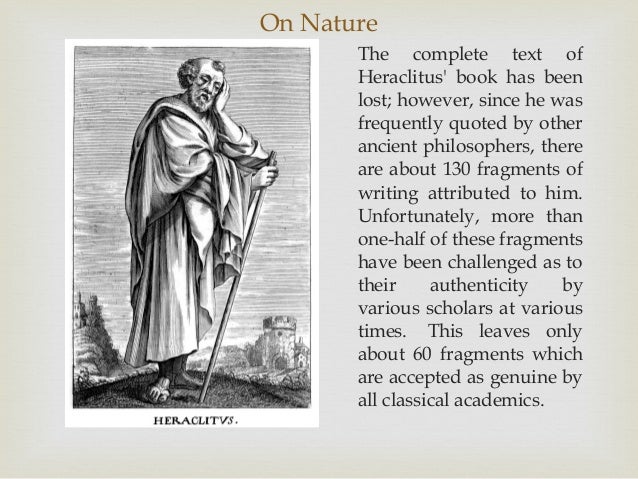

Context: "And that the father of all created things is created and uncreated, the made and the maker, we hear him (Heraclitus) saying, 'War is the father and king of all,' etc."

Lifetime is a child at play, moving pieces in a game.As quoted in Fragments (2001) translated by Brooks Haxton.Time is a game played beautifully by children.As quoted in The Beginning of All Wisdom: Timeless Advice from the Ancient Greeks (2003) by Steven Stavropoulos, p.A lifetime is a child playing, playing checkers the kingdom belongs to a child.As quoted in Contemporary Literature in Translation (1976), p.History is a child building a sand-castle by the sea, and that child is the whole majesty of man’s power in the world.Quoted by Hippolytus, Refutation of all heresies, IX, 9, 4 (Fragment 52), as translated in Reality (1994), by Carl Avren Levenson and Jonathan Westphal, p.Eternity is a child playing, playing checkers the kingdom belongs to a child.From Lives and Opinions of Eminent Philosophers by Diogenes Laërtius, Book IX, section 8.Change he called a pathway up and down, and this determines the birth of the world.You could not step twice into the same river.This statement occurs in Simplicius' Commentary on Aristotle's Physics, 1313.11 while some sources attribute to Simplicius the coining of the specific phrase "πάντα ῥεῖ (panta rhei)", meaning "everything flows/is in a state of flux", to characterize the concept in the philosophy of Heraclitus, the essential phrasing "everything changes" and variations on it, in contexts where Heraclitus's thought is being alluded to, was current in both Plato and Aristotle's writings.Everything changes and nothing stands still.Įverything gives way and nothing stays fixed.All entities move and nothing remains still.And he believed, with Plato, that the source of wisdom and philosophy both was a sense of wonder: “Time is a game played beautifully by children.” “The sun is new again, all day.” Very little in literature is more alive than this echo of a lost voice.Quotes Man, like a light in the night, is kindled and put out.

As a Greek, he has, more than the Buddha, a certain trust in thought and reason: “Seekers of wisdom first need sound intelligence.” He could express, with a kind of snorting humor, the intelligent man’s impatience with the dim-witted: “Stupidity is better kept a secret than displayed.” He compacted, as did Sappho, an extraordinary range into the few words which survived. “Just as the river where I step / is not the same, and is, / so I am as I am not.” The Logos, the word, fire and water, death and life-these in their ongoing permutations are the special province of Heraclitus. From this comes the upending wisdom of his other preoccupation-the coincidence of opposites. “ Panta rhei” (“Everything flows”), the most famous of Heraclitus’ remarks, doesn’t actually occur in the work itself, but there you have the focus of his experience.


 0 kommentar(er)
0 kommentar(er)
